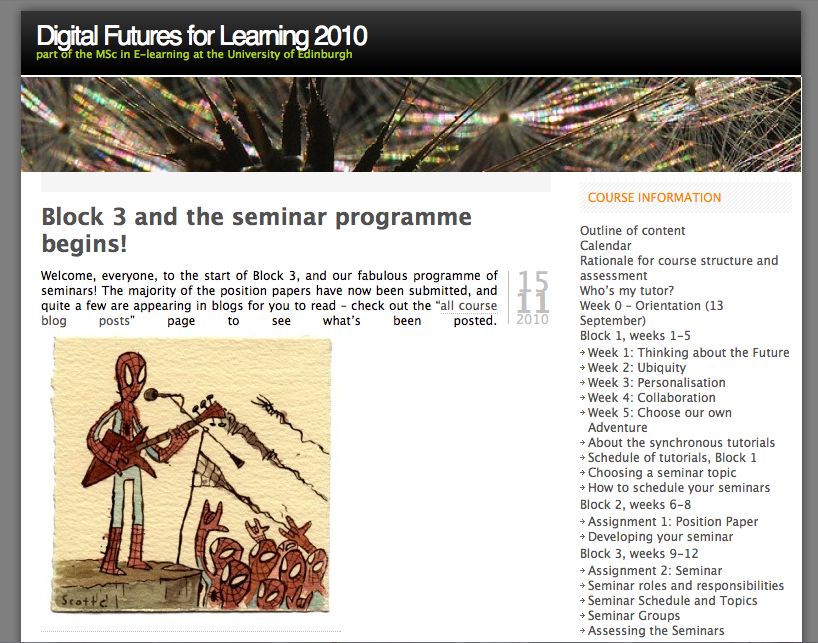The last few years of my professional life have involved a number of projects with significant ‘behind the scenes’ activity, and none more than the development of the new MSc in Education Futures at the Edinburgh Futures Institute (EFI). I started working in earnest on this programme in early 2019, when I was appointed to an EFI fellowship to develop a programme on the topic of ‘future education’. Along with a group of programme leads from across the university, the past three years have been a whirlwind of interdisciplinary conversations, curriculum and pedagogical design debates, administrative and academic milestones, and many and varied discussions about how to engage people across sectors in considering what the future of learning will be like, and what it will be for.
The public launch of the programme last week, along with five others (Creative Industries, Data, Inequality and Society, Future Governance, Narrative Futures and Service Management and Design), means that we will quite soon know who will be joining us for the very first year of this new adventure. I really can’t wait, because a lot of our design considerations have been about how to bring together a group of participants with diverse experiences and areas of focus to investigate key topics around education and learning futures. It will be fantastic to see how this plays out when the programme begins next September.
One of the most interesting aspects of EFI is the ‘fusion’ design of the courses: all the Education Futures courses are designed around two-day ‘intensive’ sessions – available to study online or on campus – and wraparound online activity. Each 10-credit course will run for five weeks, including the two full-day intensives. My programme co-director, James Lamb, has written about how we are going about designing these courses – check out his blog post here.
The curriculum design process has been equally interesting. I’ve been engaging with speculative research and teaching approaches for the past ten years or so, and it has highlighted the productive challenges of working with ideas of the future (I’m currently writing a book about this!). The first year of courses will cover topics like the design of learning organisations, and education’s role in wicked problems and challenging futures. We are also working on courses that explore methods of engaging with futures (including through cultural heritage approaches, postdigital and speculative experiments, and social science fictions), issues of personalisation, social change, creativity and resilience, and lots more. In addition to these, there are shared ‘core’ courses that all EFI students will have access to that help develop creative and data skills, and a set of electives from across the programmes that are open to all EFI students to choose from.
We’ll be piloting two of the courses between January-March 2022 – Future of Learning Organisations and Postdigital Society. The intensive sessions will take place in a specially designed fusion teaching space, and we’ve been playing around in that space and investigating the possibilities it is able to support. The programme team meets regularly and we have had amazing discussions about things like learning times and spaces, decolonising a futures-focused curriculum, and approaches to collaboration. There is a lot of energy for the new programme and for what we are each bringing from our own research, disciplinary context, teaching experiences, ideas about the future, and so on. I’ll introduce some other members of the team in a future post, and look out for a co-authored position paper from us in the next few months.
In the meantime, I warmly welcome questions about the programme – feel free to get in touch! To learn more, including about how to apply, check out the web site:



